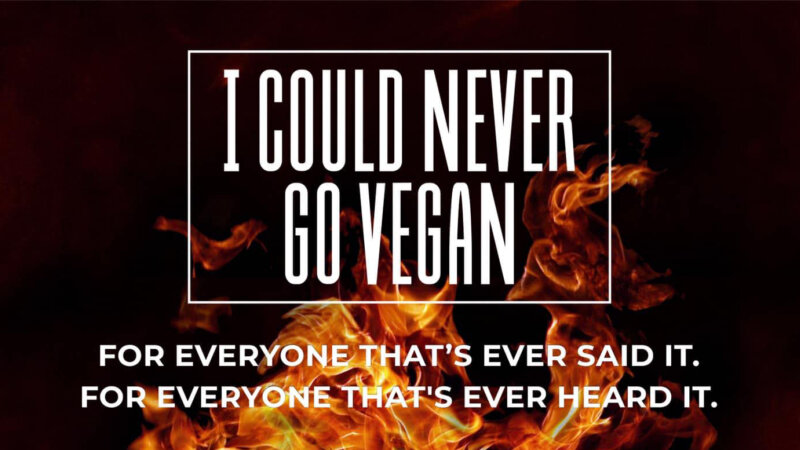Film Noir
Fritz Lang, USA, 1945
An appropriately pitch-dark film noir directed by the great Fritz Lang, who also directed such classics as Metropolisand M, Scarlet Streetis perhaps one of the defining films of the genre.
Based on the novel La Chienne(The Bitch) by Georges de La Fouchardiére, the film stars noir veteran Edward G Robinson as Christopher Cross, hands-down one of the unluckiest – and to be honest, one of the most foolish – schmucks to ever fall for a bad dame, and Joan Bennett as the dame in question, clearly enjoying herself as one of the most wickedly devious femme fatales in film noir.
She and her boyfriend, played with grinning psycho swagger by Dan Duryea, swindle Robinson’s lonely, naïve cashier out of his money, then what little there is of his dignity, as he falls helplessly in love. Eventually, our nasty little lovebirds take credit for paintings Robinson creates in his spare time. It’s difficult not to watch through one’s fingers as the web of lies and manipulation becomes more and more tangled, until things culminate in a genuine downer of an ending.
The plot is convoluted in that great way classic film noir plots tend to be, and it’s fun in a schadenfreude kind of way to see just how much worse things can get for our hapless protagonist. That said, Bennett’s character does generate a little bit of sympathy, considering she’s as much the victim of doomed, deluded romance as Christopher Cross. Still, for all of the film’s doom and gloom, there are occasional moments of humour, some provided by the protagonist’s abominable wife, played with relish by Rosalind Ivan.
Lang’s expressionist sensibilities were sadly clipped by the constraints of US filmmaking convention of the period, so he doesn’t get to show off bold visuals too much, outside of a couple of scenes which make inventive use of editing and sound design. But Scarlet Streetremains a bleak, brilliant film noir.
Nathan Scatcherd
|Terrence Malick, USA, 1973
There is a certain energy running through Terrence Malick’s debut which is a rarity in cinema. Made on a modest budget of $300,000, Badlands captures the exuberance of a young director translating his ideas onto camera for the first time while also containing a stylistic maturity far beyond his years. Aged 29 at the time of its release, Malick crafted a film which is beautiful and terrifying, if only for the nonchalance with which its perilous events are presented.
Holly (Sissy Spacek) and Kit (Martin Sheen) are lovers who go on the run after Kit kills Holly’s father. Loosely based on the murderers Charles Starkweather and Caril Ann Fugate, Badlands is a cold-hearted tale of killing for killing’s sake set against the sublime backdrop of the Great Plains. The film’s original tagline - ‘In 1959, she watched while he killed a lot of people’ - perfectly sums up its tone.
These tales of murder recounted by Holly give the film a neo-noir feel, but any noir-esque sense of moral judgement is removed. Beyond her declaration of love for her boyfriend, Holly never acknowledges her or Kit’s actions to be wrong or right. What we are left with is a curious ambiguity which is somehow more terrifying than any seedy noir villain. Kit does not kill for a sense of perceived justice, or for work, or for any reason at all. He just kills.
And Holly watches on, just as the audience does, her lack of empathy reflected in the objective way their crimes are shown on screen. Malick’s direction is cool, calm and methodical, showing these atrocities merely as matter of fact. It is a film which looks like it was put together with ease, but in reality Malick crafted one of the greatest debuts of all time.
Charles MacDonald-Jones
|Ken Loach, UK, 2016
Ken Loach announced he was done with filmmaking two years ago. But I, Daniel Blake, which won the Palme d’Or at Cannes this year, tackles subject matter which Loach perhaps felt he couldn’t ignore.
The film’s protagonist is Daniel Blake, a widower and carpenter who’s forced to stop work after a serious heart attack. Stuck in a catch-22 between doctors telling him he can’t work and a score from a ‘healthcare professional’ which says he can, he begins his struggle against a ludicrous system which grinds him down at every turn.
At the job centre, the ‘decision-makers’ are the real villains. Stripped of any capacity for humanity, they thrive on pointless bureaucracy and the power they wield in the form of benefit sanctions. It’s here that Daniel meets Katie and her two children, who’ve been placed in housing in Newcastle, far from their support network. Alone and united in adversity, they strike up a touching friendship.
Katie, who forgoes food so her children can eat, is driven by hunger to a shocking moment at a foodbank. Daniel sells all his furniture for a measly few hundred pounds. Their situation is desperate.
Despite how relentlessly depressing their dehumanisation by the system is, there are many moments of humour. Loach finds dark comedy in the ridiculous. In the opening scene, faced with a ‘computer says no’ moment with his healthcare professional, Daniel replies to a question about his bowel habits with, "Can we focus on me heart and stop talking about me arse? That works a dream". In a glorious display of defiance, he spray-paints the outside of the job centre with a message asserting his rights, beginning: "I, Daniel Blake..." "It’s me new art installation," he says.
I won’t spoil the ending for you, predictable though it may be. Suffice it to say Loach couldn’t have hammered home his point about the injustice of it all any more forcefully. This is a quietly superb, beautifully crafted and powerful film which highlights real issues currently being faced by real people in our society. Loach once said, "At best, [one of my films] can add its voice to public outrage." This particular film reduced an entire cinema to tears.
Kate MacCarthy
|Hosted by Samantha Holland
I, DANIEL BLAKE
Ken Loach, UK, 2016
From Fri 21 Oct | Various times | Showroom Cinema | £8.50
Loach’s new film is reviewed online this month by Kate MacCarthy, who considers it required viewing. Its story of the misery of individuals caught up in the contemporary benefits system in the UK is clearly a timely one. Read the review at nowthenmagazine.com.
showroomworkstation.org.uk/i-daniel-blake
COWSPIRACY
USA, 2014
Thu 17 Nov | 7pm | Regather Works | Free
Promoting Sheffield Friends of the Earth’s campaign on food issues and 'flexitarianism', this remarkable documentary is screening as part of the Festival of Debate. The audience will be invited to discuss the campaign and ways of reducing the environmental impact of food production.
regather.net
SCARLET STREET
Fritz Lang, USA, 1945
Tue 22 Nov | 7pm | Cafe #9 | Free
A compelling classic from Fritz Lang inspired by Jean Renoir’s La Chienne (1931) as much as by the novel they both adapt. Dark, stylish and hard-boiled, Scarlet Street is a superb example of film noir.
facebook.com/filmsatnumber9
BADLANDS
Terrence Malick, USA, 1973
Thu 24 Nov | 6pm | Showroom Cinema
Reviewed online this month by Charles MacDonald-Jones, this debut feature by Malick is a stark road movie with a murderous streak. Starring Martin Sheen and Sissy Spacek, the loneliness at the heart of this film is palpable. Read the review at nowthenmagazine.com.
showroomworkstation.org.uk/badlands





